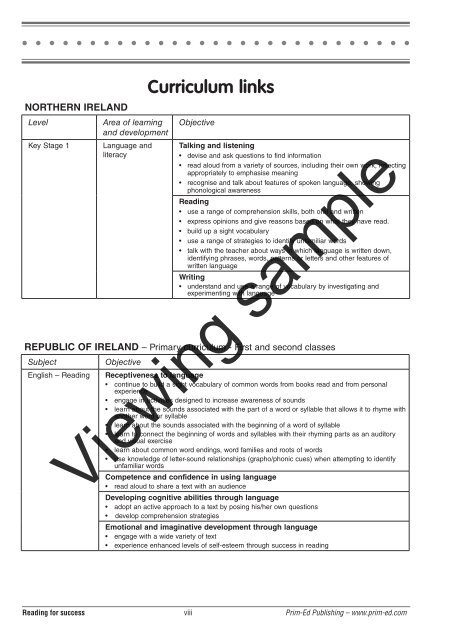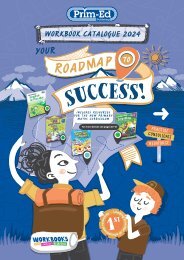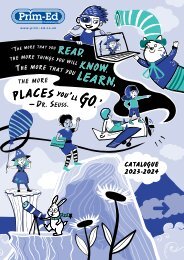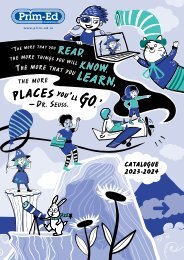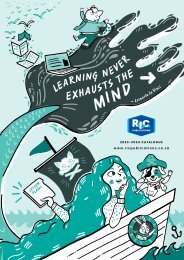PR-6218IRE Reading for Success - Book 3
You also want an ePaper? Increase the reach of your titles
YUMPU automatically turns print PDFs into web optimized ePapers that Google loves.
NORTHERN IRELAND<br />
Level<br />
Key Stage 1<br />
Area of learning<br />
and development<br />
Language and<br />
literacy<br />
Curriculum links<br />
Objective<br />
Talking and listening<br />
• devise and ask questions to find in<strong>for</strong>mation<br />
• read aloud from a variety of sources, including their own work, inflecting<br />
appropriately to emphasise meaning<br />
• recognise and talk about features of spoken language, showing<br />
phonological awareness<br />
<strong>Reading</strong><br />
• use a range of comprehension skills, both oral and written<br />
• express opinions and give reasons based on what they have read.<br />
• build up a sight vocabulary<br />
• use a range of strategies to identify unfamiliar words<br />
• talk with the teacher about ways in which language is written down,<br />
identifying phrases, words, patterns or letters and other features of<br />
written language<br />
Writing<br />
• understand and use a range of vocabulary by investigating and<br />
experimenting with language<br />
REPUBLIC OF IRELAND – Primary curriculum - First and second classes<br />
Subject<br />
English – <strong>Reading</strong><br />
Objective<br />
Receptiveness to language<br />
• continue to build a sight vocabulary of common words from books read and from personal<br />
experience<br />
• engage in activities designed to increase awareness of sounds<br />
• learn about the sounds associated with the part of a word or syllable that allows it to rhyme with<br />
another word or syllable<br />
• learn about the sounds associated with the beginning of a word of syllable<br />
• learn to connect the beginning of words and syllables with their rhyming parts as an auditory<br />
and visual exercise<br />
• learn about common word endings, word families and roots of words<br />
• use knowledge of letter-sound relationships (grapho/phonic cues) when attempting to identify<br />
unfamiliar words<br />
Competence and confidence in using language<br />
• read aloud to share a text with an audience<br />
Developing cognitive abilities through language<br />
• adopt an active approach to a text by posing his/her own questions<br />
• develop comprehension strategies<br />
Emotional and imaginative development through language<br />
• engage with a wide variety of text<br />
• experience enhanced levels of self-esteem through success in reading<br />
Viewing sample<br />
<strong>Reading</strong> <strong>for</strong> success viii Prim-Ed Publishing – www.prim-ed.com


